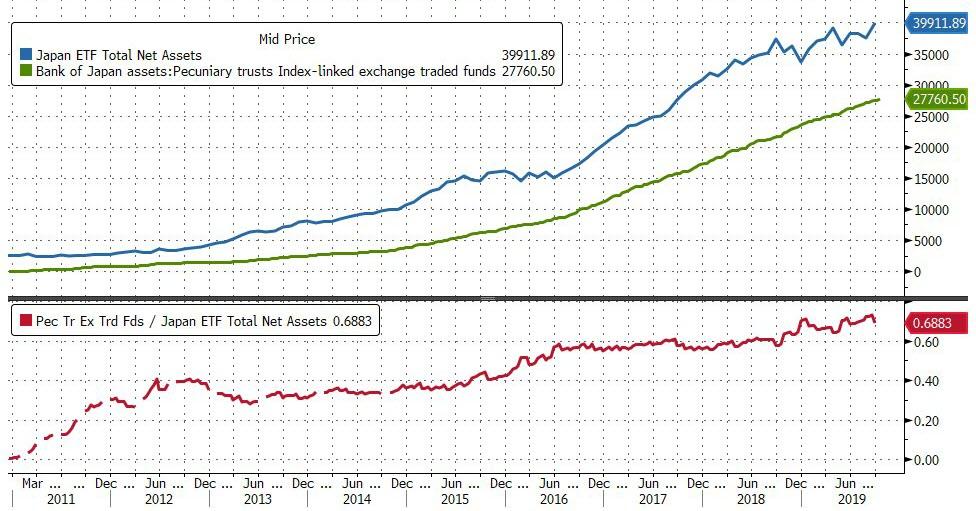BOJ To Start Lending ETF Shares To Prevent Market Freeze
While most central banks are contemplating how to gently break it to the public that since they are out of ammo with interest rates at all time low, and $15 trillion in global sovereign debt is now yielding negative – a financial abortion which suggests the value of money is negative – the only hope markets have to avoid collapse is for central banks to start buying stocks in the open market, the BOJ has no such problems: after all the Japanese central bank (alongside its Swiss peer) has for years been quite open that it purchases stocks and ETFs directly. Unfortunately, in its efforts to stabilize the market, the BOJ has been purchasing a little too many ETFs and it now owns far too much.
Last May, speaking to Japanese parliamentarians, BOJ Governor Haruhiko Kuroda noted that the central bank now owns nealry 80% of the country’s stock of ETFs, the result of a program begun in 2010 and ramped up in 2013.

Unfortunately, the program failed in its immediate task: the main goal of ETF buying was to lower Japan’s equity-risk premium – the extra returns investors expect for buying stock rather than simply parking their money in riskless government debt. A lower premium should raise stock prices and make equity financing easier for listed companies. But at just shy of 7%, Japan’s premium remains stubbornly above the U.S.’s 6%—with the gap little changed in six years – according to Aswath Damodaran, professor of finance at New York University’s Stern School of Business.
Now what is truly terrifying is that the impact of the BOJ’s massive equity purchases is actually not easily visible in Japanese stock valuations as share prices have actually fallen as a multiple of earnings during the course of the program.
…click on the above link to read the rest of the article…